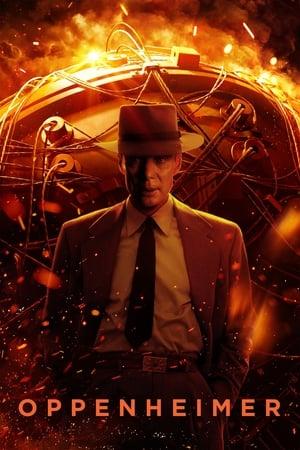Considerations on Oppenheimer
In 1955 Richard Feynman gave a speech on “The Value of Science”. He began with a Buddhist proverb he had learned on a trip to Honolulu:
“To every man is given the key to the gates of heaven; the same key opens the gates of hell."
This could be the extreme synthesis of a cinematic masterpiece that undoubtedly brought a thorny discussion from an ethical and moral point of view to the world's attention.
The main focus of the film was the trial of Oppenheimer, the head of the Manhattan project, not the inventor of the atomic bomb. In light of this, it is not difficult to understand how the historical narration of a fact that actually happened was the golden opportunity to once again put science and its technical and political responsibilities on trial.
Since it is really difficult to find faults in this cinematic masterpiece, since I am not an expert on cinema or history and considering that now everyone has reviewed Oppenheimer, I will limit myself to expressing 3 personal considerations.
Let's start with Feynman. In 1955, 10 years had passed since the dropping of the two bombs, the audience gathered to listen to the future Nobel Prize winner (1965) was faced with a much more mature personality than the young genius; engaged in the Manhattan project before even obtaining a degree, he himself defined himself as a "nobody" and then became a point of reference like few others.
A change of perspective that not only interested the youngest and most fervent minds of the project. Those who understood it with the Trinity Test, those who had confirmation with Hiroshima, those who had certainty with Nagasaki, everyone was aware that a new era had begun and it was necessary to take a clear position. There was no longer a Hitler to beat, but a humanity to safeguard.
It's easy to understand who Feynman is, the director wanted to underline one of his best-known passions, that of continuously playing the bongos. It's not just an image of carefreeness, Feynman played them in every context, the rhythm was a catalyst for his brain activity. They were not easy years for the American scientist; in addition to his involvement in the most important war program in history, he had to face the loss of his beloved young wife.
Moving forward we move on to the small disappointment for an average Italian, that is, the little attention given to Enrico Fermi. A disappointment that passes quickly because, as I implied before, this film is a trial, not a biography. Few in history will have had the charisma of Enrico Fermi. Almost like a painting by Caravaggio, his biography only makes sense if you contemplate lights and shadows together.
For those who want to catch up, David N. Schwartz, son of the Nobel Prize winner for the discovery of the muon neutrino, is the author of one of the most beautiful biographies I have ever read: L< 6>the last man who knew everything. This is neither an apology nor a moral criticism, the author narrates in a unique way a character who is certainly enigmatic but, at the same time, deserving of great prestige; the exemplary reflection of one of the most complex time arcs in history.
The final consideration is for the director. Complimenting C. Nolan is like adding a glass of water to the ocean. However, in this film I particularly appreciated the play of colors used to distinguish the objective/historical level from the subjective one and the very veiled and perhaps conspiracy-mongering reference to J. F. Kennedy. The young senator who voted in favor of Oppenheimer to the detriment of Strauss, the president who asked congress for more than 22 billion dollars to finance the Apollo program, the president who was killed at 12.30 pm on November 22, 1963 shortly before going to the ceremony in which Oppenheimer was politically rehabilitated and awarded with the Enrico Fermi Award medal (in honor of the physicist who died in 1954).
I conclude by proclaiming the "winner" of this story: Albert Einstein. If what emerged from the film was only a genius from another era not suited to modernity, I invite you to read his "Speech on peace in the atomic age" - February 12, 1950. His position is the most coherent and his words they have objective force. The fact remains that history has treated these words as his theories, difficult to understand, impossible to apply to human issues.




